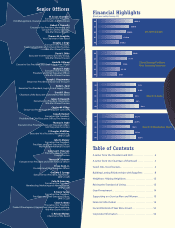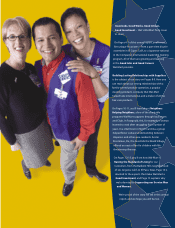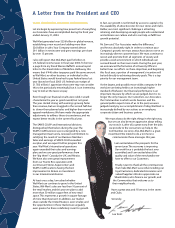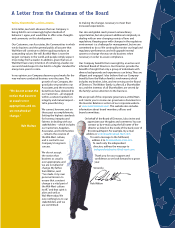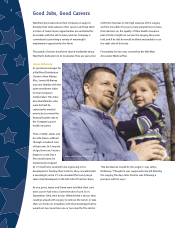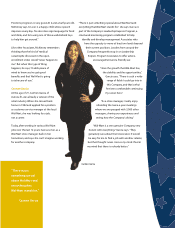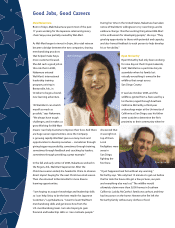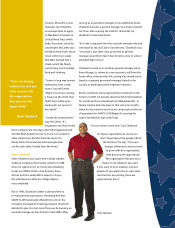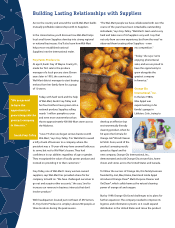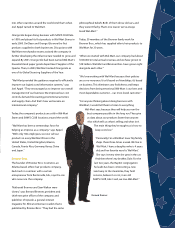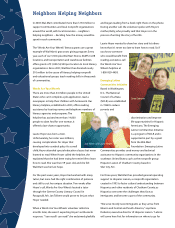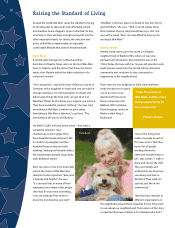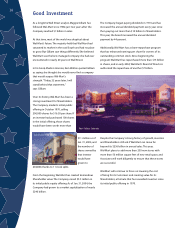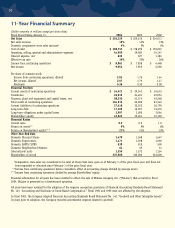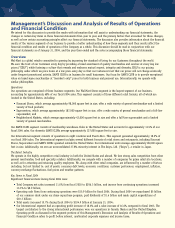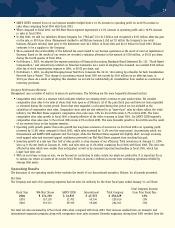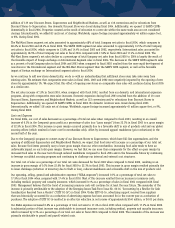Walmart 2004 Annual Report Download - page 12
Download and view the complete annual report
Please find page 12 of the 2004 Walmart annual report below. You can navigate through the pages in the report by either clicking on the pages listed below, or by using the keyword search tool below to find specific information within the annual report.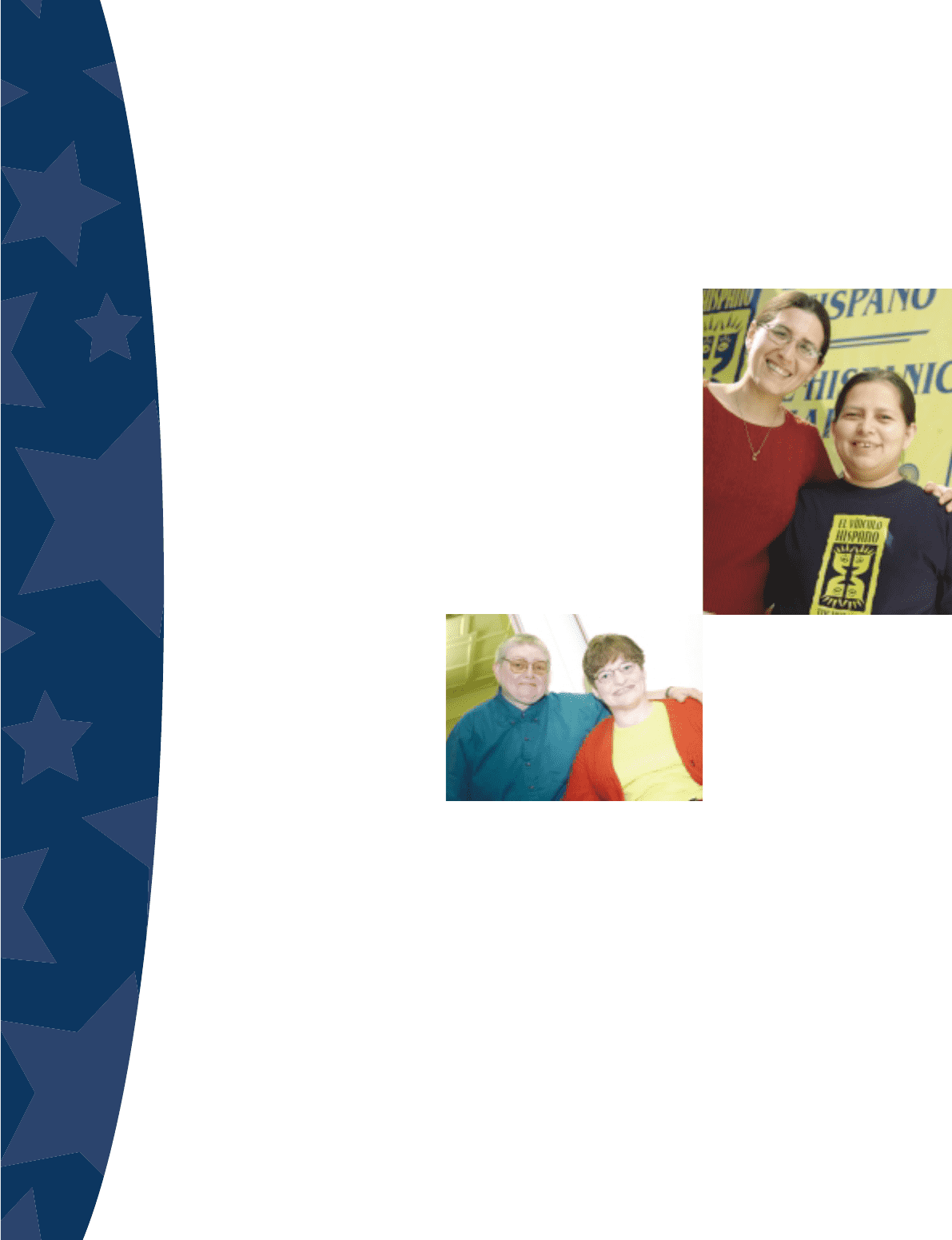
10
In 2003,Wal-Mart contributed more than $150 million to
support communities and local nonprofit organizations
around the world, with local Associates – neighbors
helping neighbors – deciding how the money would be
spent in each community.
The “Words Are Your Wheels” literacy grants are a great
example of Wal-Mart’s grassroots giving program. Every
year, each of our 3,500-plus Wal-Mart Stores, SAM’S CLUB
locations, and transportation and warehouse facilities
offers grants of $1,000-$2,500 per location to local literacy
organizations. Since 2001, Wal-Mart has donated nearly
$10 million to the cause of literacy, helping nonprofit
and educational groups teach reading skills in thousands
of communities.
Words Are Your Wheels
There are more than 44 million people in the United
States who can’t complete a job application, read a
newspaper or help their children with homework. Our
literacy helpline, established in 2001, offers reading
assistance by locating names and telephone numbers of
literacy agencies and programs.The
helpline has assisted more than 14,000
people to date. And for one woman, it
offered a last-chance opportunity.
Laurie Hoyer was born a twin.
Unfortunately, her sister was stillborn,
causing complications for Hoyer that
developed into cerebral palsy. As a small
child, Hoyer attended special-education classes but never
learned to read.When Hoyer called the helpline, she
explained that she had been trying her entire life to learn
how to read. She was then 39 years old, and she felt
Wal-Mart was her last hope.
For the past seven years, Hoyer had worked with many
tutors, but none had the right combination of patience
and skill to suit her unique situation.Two weeks after
Hoyer’s call,Words Are Your Wheels located a tutor
through the Greene County Literacy Council in
Paragould, Ark. Jan Tolbert would prove to be just what
Hoyer needed.
When a Words Are Your Wheels volunteer called six
months later, she wasn’t expecting Hoyer’s enthusiastic
response. “I can read! I can read!” she exclaimed gleefully
and began reading from a book right there on the phone.
During another call, the volunteer spoke with Hoyer’s
mother, Betty, who proudly said that Hoyer is in the
process of writing the story of her life.
Laurie Hoyer wanted to share her story and let others
know that it’s never too late to learn how to read. So if
you know someone
who would benefit from
reading assistance, call
the Words Are Your
Wheels helpline at
1-800-929-4458.
Emerging Latino
Communities Initiative
Based in Washington,
D.C.,The National
Council of La Raza
(NCLR) was established
in 1968 to reduce
poverty and
discrimination and improve
life opportunities for Hispanic
Americans.The Emerging
Latino Communities Initiative
is a program of NCLR and is
supported in part by a grant
from the Wal-Mart
Foundation. Emerging Latino
Communities provides seed money and technical
assistance to Hispanic community organizations in the
southeast United States, such as the nonprofit group
Hispanic Liaison of Chatham County, based in
Siler City, N.C.
For three years,Wal-Mart has provided general operating
support to Hispanic Liaison, a nonprofit organization
created in 1995 to foster cultural understanding between
Hispanics and other residents of Chatham County, as
Hispanics overcome the challenges they face as
immigrants and become a part of the community.
“We serve mostly new immigrants as they arrive from
Mexico and Central and South America,”says Ilana
Dubester, executive director of Hispanic Liaison. “Latinos
will come here first for information on where to go for
Neighbors Helping Neighbors
Ilana Dubester
Jan Tolbert and Laurie Hoyer


